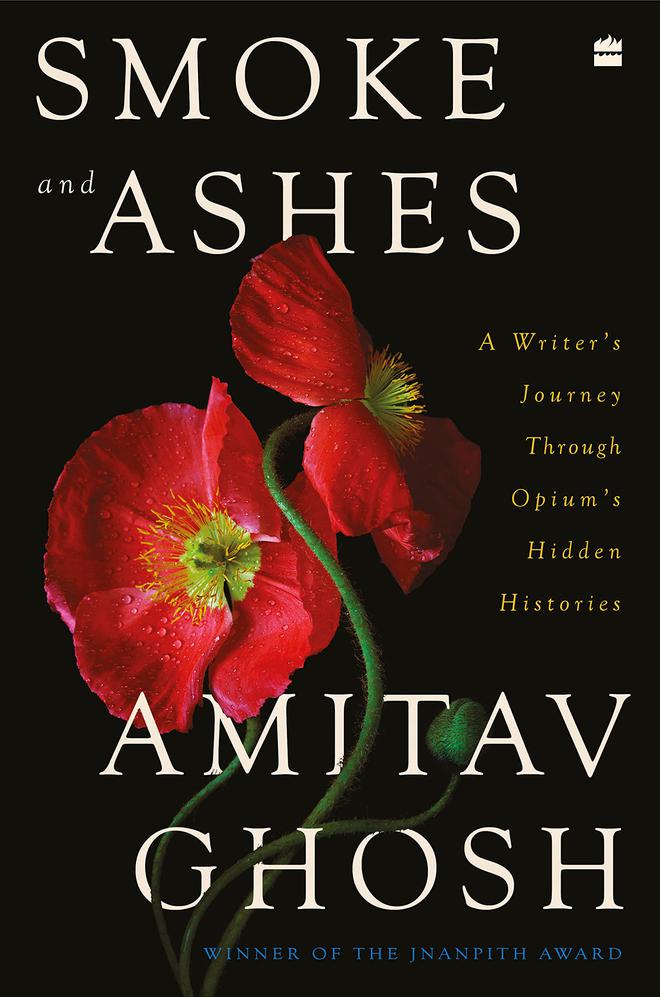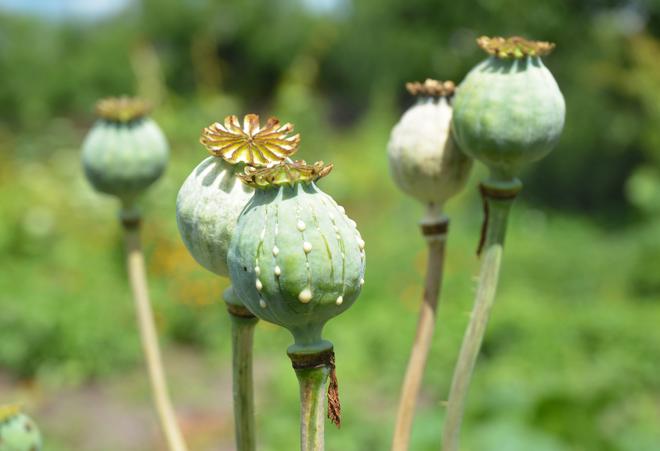
In his hotel suite in Chennai, on the penultimate leg of his book launch tour, Amitav Ghosh begins pretty much where his book Smoke and Ashes does: with a cup of tea. But just as his book covers a lot of ground, there’s much more engaging conversation up ahead: the sway of poppy in the world, China, imperialism, geopolitics, climate change... his favourite themes, his preferred medium of writing... In his forthright, erudite manner, he calls out whataboutery, but with a gentleness that is, today, as quaint as it is charming. Since his first book was published in 1986 (The Circle of Reason), Amitav Ghosh has emerged as one of the most articulate post-colonial writers of import. His oeuvre today, spanning 20 books, and straddling several genres, stands testimony to his stature as a polestar among Indian writers in English. In a conversation with The Hindu, this much-feted writer talks about how poppy continues to be more important to world events than we realise. Edited excerpts:
How would you react if one were to call you, in writerly terms, the Emperor of the East?
(Laughs) I’m definitely not the Emperor of the East. As writers, what we do has nothing to do with imposing a sort of rule over people. It’s more that we’re trying to find an audience, trying to find people who will listen to the stories we have to tell. So, I would say it is the other way around: the East is the Emperor of us.
But you have focused a great deal on the East...
Yeah, absolutely. I think one way or the other, almost everything I’ve written has been focused on the Indian Ocean region, and the Bay of Bengal. It’s not something that I planned. But I realise now that that’s just how it has turned out.
China is re-emerging into a position of power globally. With no poppy to impede its growth now, do you think China is poised to lead the world?

Certainly, what we do see today is a massive geopolitical shift. For the last 400 to 500 years, basically, Europeans have been completely dominant in the world. Now we see this massive shift, where there is leadership, not just in terms of military power, but also in terms of productivity. Just in terms of the weight in the world, there’s been a huge shift: now, the BRICS (Brazil, Russia, India, China and South Africa) economies together, have become, for the first time, larger than the economies of the G7. If you take all of the Indian Ocean region together, including, say, the Pacific Rim, by far, the greatest part of the world’s industrial and economic activity happens in this region. But this is how human history used to be, before the 18th century. China was the great manufacturing hub of the world; and India was another great manufacturing hub. This shift that is taking place now, is causing great upheaval and I don’t think the collective West is going to be easily reconciled to these changes.

There have been media reports that the current crisis in Manipur has an opium angle to it. Is poppy still relevant, is it ‘shaping a symmetry’ even in Manipur?
I was actually in Manipur in January, and people were talking about the planting of poppy in several parts of the State. It’s well known that there are opium processing plants on the other side of the border. A lot of the Myanmar poppy planting has shifted very close to the Indian border. If anyone thinks that the importance of poppy is declining, they really need to be disillusioned. If anything, the power of poppy has been growing stronger and stronger. What we see there, is really a sort of repetition of a role that opium has historically played, which is a kind of multiplier effect on pre-existing tensions and lines of fracture. We need to be aware that these problems are not to be seen in the rearview mirror. They’re appearing ahead of us.

In terms of literature, do you think there’s enough on climate change?
I think if every writer in the world wanted to write about this, and nothing else, it would still not be enough. Because this is, to put it very simply, the most perilous time that humans have ever been in, and we just don’t know where this is going to lead and how it’s going to affect us.
This is not just about climate change, it’s about other kinds of anthropogenic impact too. Unfortunately, very often, people will blame catastrophes on climate change, and not recognise the ways in which bad planning, bad ways of creating ‘development’ have also led to these catastrophes. If you try and disrupt the environment in these ways, obviously, the environment is going to create a huge backlash.
Can you tell us about your process of writing?
I write in a very regular way. I think writing is a lot like music. So just as in music, you have to do riyaz or practice, I think the same is true of writing. You have to constantly be writing in order to find the kind of tone and the pitch that you want. So it’s very necessary to write regularly, in my experience. For me, writing is an everyday thing. I usually spend my mornings writing, and then I also have to devote a certain amount of time to doing the research on which the writing is based.
How much does your Bengali sensibility shape your work?
I think my orientation towards the world and my interests owe a lot to my Bengali upbringing, my place within Bengali culture and my reading in Bangla. I often think of my work like a compass; one end of the compass is in Bengal, but the other goes round and round. So in a sense Bengal has been a kind of launching pad for me. But more than that, it’s also the Bay of Bengal.
Is the ‘Ibis Trilogy’ your magnum opus?
I would certainly say the Ibis Trilogy is the most ambitious thing I’ve ever done. It’s the most ambitious, the most expansive, the broadest. I could never do anything like that again, in just the amount of work that it took, the sustained concentration, and work over 12 years. I really pushed myself to the limits.
Smoke and Ashes: A Writer’s Journey Through Opium’s Hidden Histories; Amitav Ghosh, HarperCollins, ₹699.
ramya.kannan@thehindu.co.in







